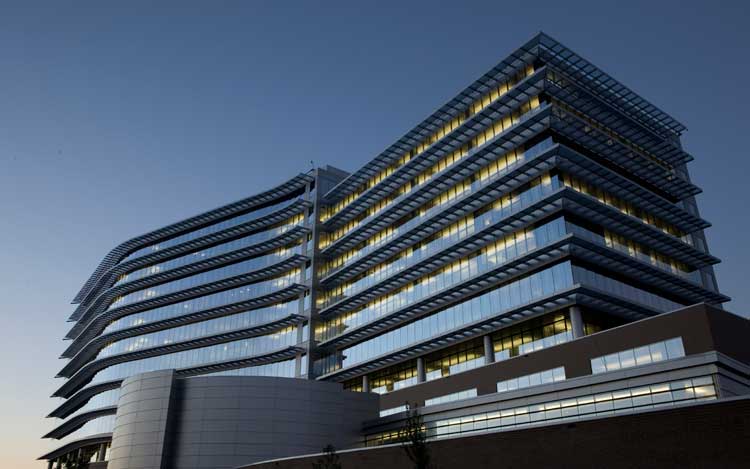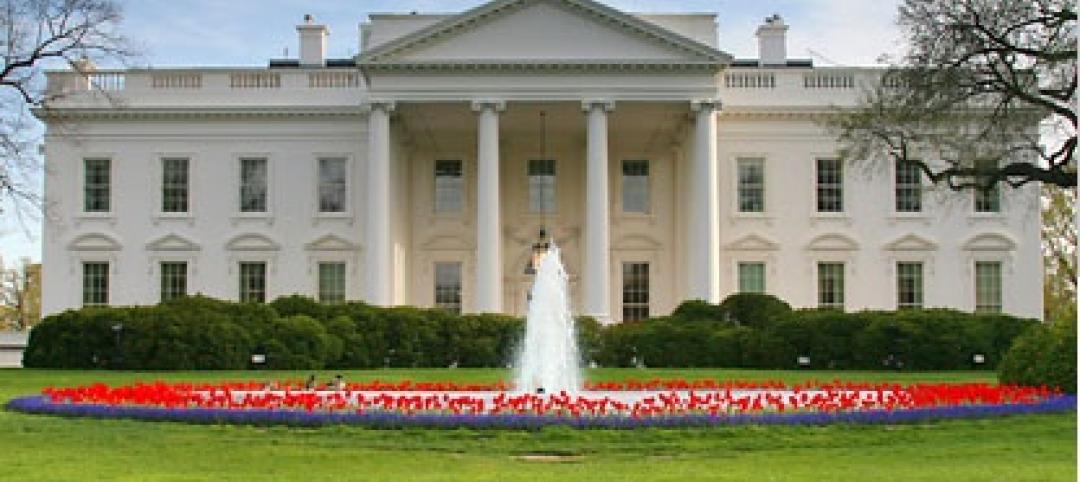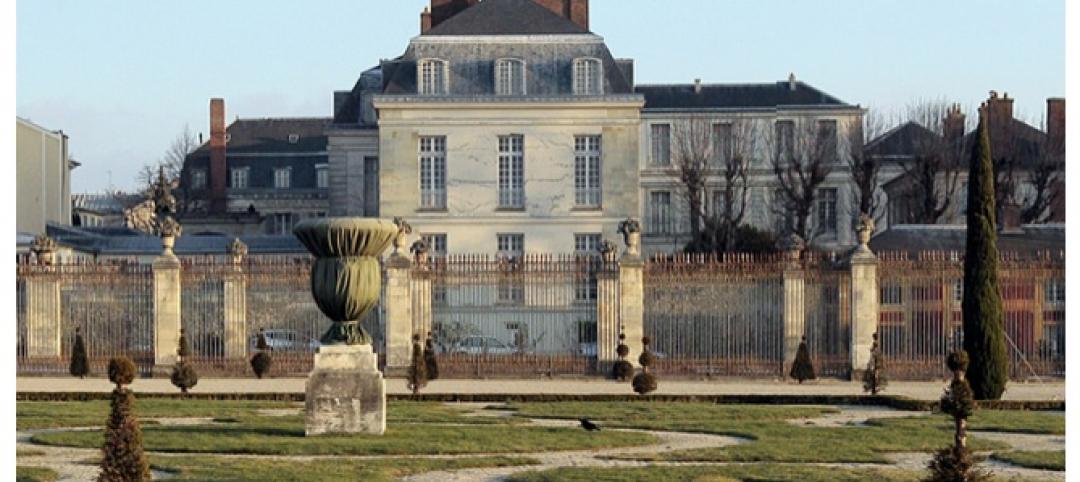CBRE Group announced today five recipient institutions in its Real Green Research Challenge (RGRC). Launched in September 2012, the RGRC is CBRE’s $1 million commitment to fund leading-edge sustainability research and innovation in commercial real estate.
CBRE has awarded RGRC funding and organizational support to sustainability projects developed by the Natural Resources Defense Council, Stanford University, EURO Institute of Real Estate Management, Cleveland State University and Central Michigan University, and Maastricht University.
“Growing market awareness of commercial buildings’ environmental impact is inspiring innovation in sustainability research,” said Bob Sulentic, CBRE’s President and CEO. “The Real Green Research Challenge advances this research by providing financial resources as well as access to CBRE’s market-leading global market data and technical expertise to help address some of the most challenging sustainability issues facing commercial real estate owners, investors and occupiers.”
After an evaluation of more than 100 submissions by an independent judging panel, CBRE has chosen five projects to receive RGRC financial awards:
- a rating system for comparative tenant energy use that provides a quantitative foundation for identifying and promoting energy efficient practices (Natural Resources Defense Council’s Center for Market Innovation);
- a detailed empirical evaluation of EPA ENERGY STAR® energy management strategies allowing facilities and property managers to prioritize energy efficiency projects (Stanford University, Center for Integrated Facility Engineering);
- a comprehensive economic analysis of the value implications of green building practices on large institutional real estate portfolios (EURO Institute of Real Estate Management);
- a new industry-wide, regionally sensitive, green building scoring protocol system to inform U.S. office tenants’ leasing decisions and developers’ sustainable building choices (Cleveland State University and Central Michigan University); and
- a quarterly green building index of the top 30 U.S. metro markets, yielding insights for policy makers, developers and other stakeholders and supporting lenders’ risk management analysis and investors' decisions (Maastricht University).
“The projects supported through the Real Green Research Challenge will add significant knowledge to some of the key sustainability issues in commercial real estate, such as the relative value of sustainable buildings, the most effective energy efficiency initiatives and the location of green building market growth,” said Dave Pogue, CBRE’s Global Director of Corporate Responsibility. “These and other issues are the focus of the projects CBRE is funding, and the answers could have a profound effect on how buildings are leased, occupied and improved in the future.“
CBRE’s Environmental Sustainability program includes global commitments in 11 key areas of environmentally sound performance, including resource management, occupancy, communications and training, public policy and procurement. The program provides best practices and initiatives that strengthen CBRE’s own environmental commitment, reflect the best environmental practices in our clients’ properties, and provide vital training and education to CBRE professionals.
For more information about the RGRC, please visit www.cbre.com/rgrc.
About CBRE Group, Inc.
CBRE Group, Inc. (CBG), a Fortune 500 and S&P 500 company headquartered in Los Angeles, is the world’s largest commercial real estate services and investment firm (in terms of 2012 revenue). The Company has approximately 37,000 employees (excluding affiliates), and serves real estate owners, investors and occupiers through more than 300 offices (excluding affiliates) worldwide. CBRE offers strategic advice and execution for property sales and leasing; corporate services; property, facilities and project management; mortgage banking; appraisal and valuation; development services; investment management; and research and consulting. Please visit our website at www.cbre.com.
Related Stories
| Jan 4, 2011
Product of the Week: Zinc cladding helps border crossing blend in with surroundings
Zinc panels provide natural-looking, durable cladding for an administrative building and toll canopies at the newly expanded Queenstown Plaza U.S.-Canada border crossing at the Niagara Gorge. Toronto’s Moriyama & Teshima Architects chose the zinc alloy panels for their ability to blend with the structures’ scenic surroundings, as well as for their low maintenance and sustainable qualities. The structures incorporate 14,000 sf of Rheinzink’s branded Angled Standing Seam and Reveal Panels in graphite gray.
| Jan 4, 2011
6 green building trends to watch in 2011
According to a report by New York-based JWT Intelligence, there are six key green building trends to watch in 2011, including: 3D printing, biomimicry, and more transparent and accurate green claims.
| Jan 4, 2011
LEED standards under fire in NYC
This year, for the first time, owners of 25,000 commercial properties in New York must report their buildings’ energy use to the city. However, LEED doesn’t measure energy use and costs, something a growing number of engineers, architects, and landlords insist must be done. Their concerns and a general blossoming of environmental awareness have spawned a host of rating systems that could test LEED’s dominance.
| Jan 4, 2011
LEED 2012: 10 changes you should know about
The USGBC is beginning its review and planning for the next version of LEED—LEED 2012. The draft version of LEED 2012 is currently in the first of at least two public comment periods, and it’s important to take a look at proposed changes to see the direction USGBC is taking, the plans they have for LEED, and—most importantly—how they affect you.
| Jan 4, 2011
California buildings: now even more efficient
New buildings in California must now be more sustainable under the state’s Green Building Standards Code, which took effect with the new year. CALGreen, the first statewide green building code in the country, requires new buildings to be more energy efficient, use less water, and emit fewer pollutants, among many other requirements. And they have the potential to affect LEED ratings.
| Jan 4, 2011
New Years resolutions for architects, urban planners, and real estate developers
Roger K. Lewis, an architect and a professor emeritus of architecture at the University of Maryland, writes in the Washington Post about New Years resolutions he proposes for anyone involved in influencing buildings and cities. Among his proposals: recycle and reuse aging or obsolete buildings instead of demolishing them; amend or eliminate out-of-date, obstructive, and overly complex zoning ordinances; and make all city and suburban streets safe for cyclists and pedestrians.
| Jan 4, 2011
An official bargain, White House loses $79 million in property value
One of the most famous office buildings in the world—and the official the residence of the President of the United States—is now worth only $251.6 million. At the top of the housing boom, the 132-room complex was valued at $331.5 million (still sounds like a bargain), according to Zillow, the online real estate marketplace. That reflects a decline in property value of about 24%.
| Jan 4, 2011
Luxury hotel planned for Palace of Versailles
Want to spend the night at the Palace of Versailles? The Hotel du Grand Controle, a 1680s mansion built on palace grounds for the king's treasurer and vacant since the French Revolution, will soon be turned into a luxury hotel. Versailles is partnering with Belgian hotel company Ivy International to restore the dilapidated estate into a 23-room luxury hotel. Guests can live like a king or queen for a while—and keep their heads.
| Jan 4, 2011
Grubb & Ellis predicts commercial real estate recovery
Grubb & Ellis Company, a leading real estate services and investment firm, released its 2011 Real Estate Forecast, which foresees the start of a slow recovery in the leasing market for all property types in the coming year.
| Jan 4, 2011
Furniture Sustainability Standard - Approved by ANSI and Released for Distribution
BIFMA International recently announced formal American National Standards Institute (ANSI) approval and release of the ANSI/BIFMA e3-2010 Furniture Sustainability Standard. The e3 standard represents a structured methodology to evaluate the "sustainable" attributes of furniture products and constitutes the technical criteria of the level product certification program.










